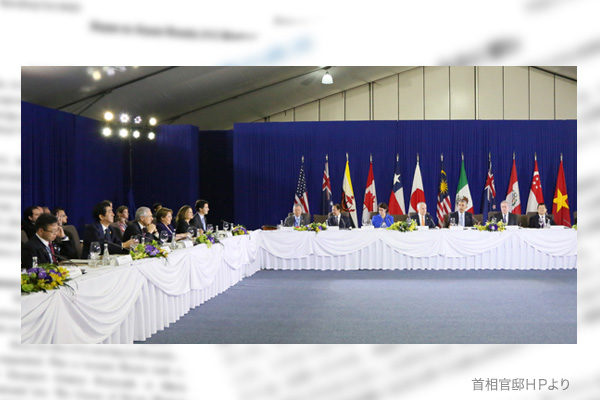Following China’s application to join the Comprehensive and Progressive Agreement for Trans-Pacific Partnership (CPTPP), Taiwan filed its application. While I noted in my previous article (#831) that Taiwan should promptly apply to accede to the free trade agreement, the Taiwanese application came faster than expected. Taiwan might have been concerned that it could be isolated from the Asian economic sphere after having been blocked by China from participating in the Regional Comprehensive Economic Partnership agreement signed last year.
Taiwan was able to respond quickly because it had been well prepared to file the application. Taiwan had long hoped to join the CPTPP, placing hopes on help from Japan that chairs the CPTPP this year. While Japan had been worried about angering China, Taiwan had continued unofficial talks behind the scenes with each CPTPP member state.
As China filed its application, however, the situation turned around, encouraging Taiwan to file its application immediately so that the application could be treated as simultaneous. This is the background for Japanese Foreign Minister Toshimitsu Motegi’s statement welcoming the Taiwanese application. Objectively, Taiwan is far more qualified than China to join the CPTPP. It was natural for Japan to welcome the Taiwanese bid.
China has raised strong objection to the Taiwanese application and protested against Japan’s response. China may pressure each CPTPP member to reject the Taiwanese application.
A key phase before launching negotiations
The problem is how to deal with the two applications from now. I hear some worrying opinions. Some people say it would be better to launch negotiations with China instead of slamming the door shut. This opinion sounds plausible but fails to consider the CPTPP accession process, falling in China’s trap.
The process is divided into two phases. The first phase is set for a decision on whether to launch CPTPP accession negotiations. In the second phase, a decision will come on whether to approve the accession. Many people fail to separate the two phases. We must focus on the entry into the first phase. As pointed out in my previous article, China may be confident that if negotiations are launched, it could take advantage of its vast market to win over each CPTPP member and get exceptions from CPTPP trade and investment liberalization rules. As a result, CPTPP rules could be watered down.
Therefore, how to lead China to commit to complying with the CPTPP rules before negotiations will be important. When a decision to launch negotiation with the United Kingdom on its CPTPP accession came in June, the country was required to reveal means to abide by all existing CPTPP rules. When filing its application, Taiwan also expressed its readiness to accept all CPTPP rules.
Japan should not enter Chinese accession negotiations and be cautious about the Chinese application unless China makes the same commitment as Taiwan. This does not represent slamming the door shut. Given that the Xi Jinping regime is toughening its economic control to prop up state-run companies in a manner to run counter to reform, it is justifiable to be cautious.
Simultaneous accession would be dangerous
Some people suggest that China and Taiwan be allowed to simultaneously accede to the CPTPP. This suggestion ignores the compliance with CPTPP rules and dangerously gives priority to a political balance between China and Taiwan. The admission of China to the CPTPP negotiation would not only close the door to the United States’ comeback to the pact but also lower hurdles for China to join the CPTPP. This would lead Japan to lose sight of its strategic goals. Whether a new Japanese government could address the matter without being shaken by such easy approach would be tested as soon as it is inaugurated.
Masahiko Hosokawa is a professor at Meisei University and a former director-general of the Trade Control Department at Japan’s Ministry of Economy, Trade and Industry. He is also a Planning Committee member at the Japan Institute for National Fundamentals.


